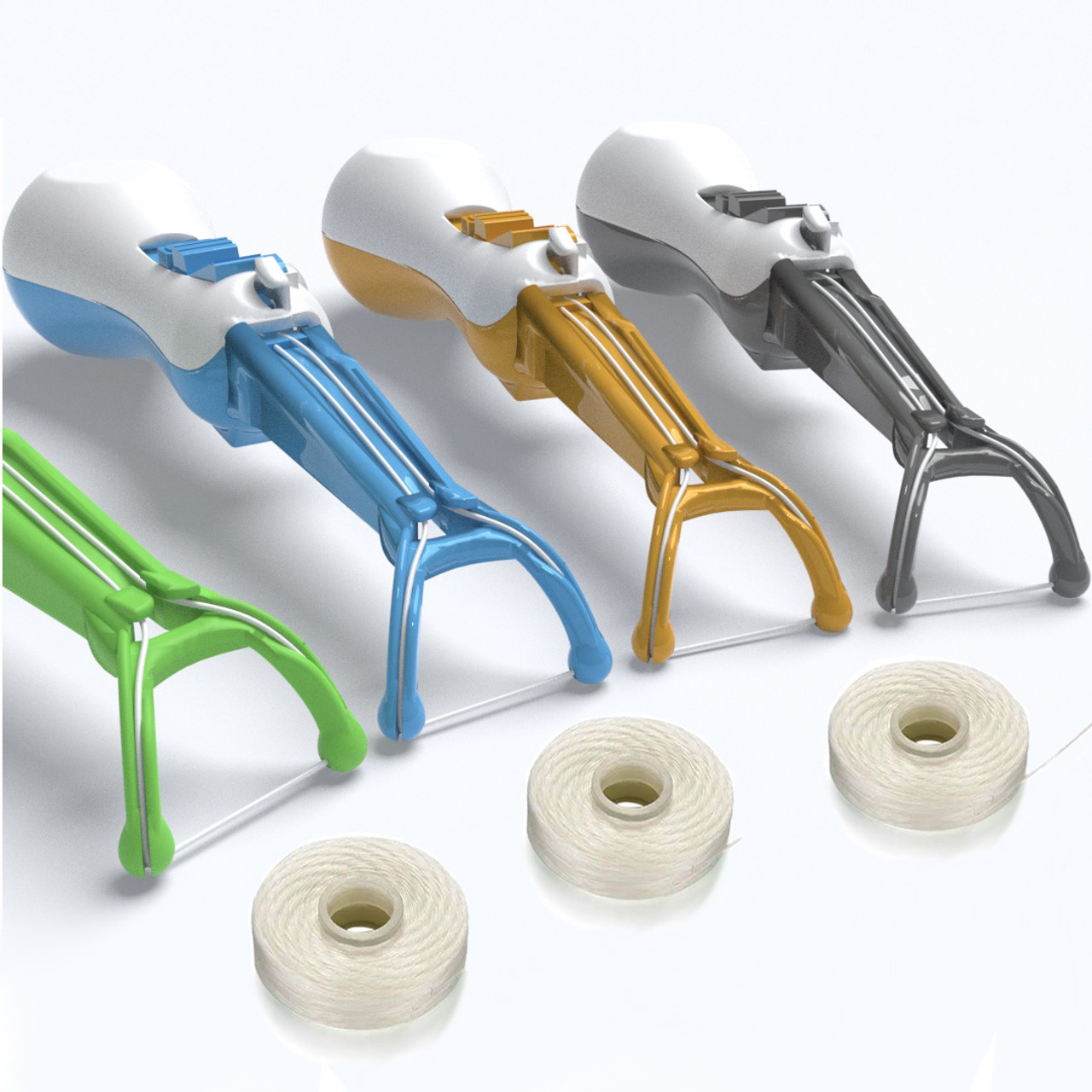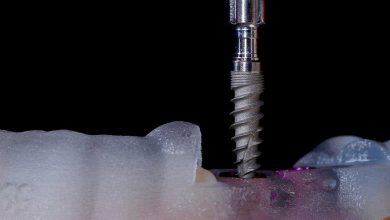Can You Reuse Dental Floss?

Yes, dental floss should not be reused as it can lead to the spread of bacteria and potentially compromise oral hygiene. Reusing dental floss increases the risk of transferring bacteria from one tooth to another, defeating the purpose of flossing.
The Potential Risks Associated With Reusing Dental Floss
The potential risks associated with reusing dental floss include bacterial contamination, accumulation of oral bacteria on used floss, and the introduction of harmful bacteria into gums and teeth. Reusing dental floss can also lead to reduced effectiveness in plaque removal and loss of tension and efficacy in used floss strands. This can result in the inability to effectively remove plaque and debris from teeth and gums.
It is important to note that dental floss is designed for single use only. Reusing dental floss can harbor bacteria and may increase the risk of dental infections and other oral health issues. Therefore, it is recommended to use fresh dental floss every time you clean between your teeth, ensuring optimal oral hygiene.
The Debate Surrounding Reusing Dental Floss
html
The Debate Surrounding Reusing Dental Floss
Eco-friendly perspective:
The issue of reusing dental floss is often discussed from an eco-friendly perspective. With increasing concern over reducing waste and environmental impact, some individuals consider reusing floss as a way to minimize their contribution to landfill waste.
Evaluating the sustainability of flossing habits:
From a sustainability standpoint, dentists and environmental experts evaluate the long-term impact of different flossing habits. While reusing floss may save money and resources in the short term, it is important to consider the effectiveness and hygiene of reused floss.
Dental professionals’ viewpoint:
Dental professionals generally discourage the practice of reusing dental floss. They emphasize the importance of using fresh, clean floss for each use to maintain oral hygiene and prevent the spread of bacteria.
Recommendations against reusing floss:
There are various reasons why reusing dental floss is not recommended. As floss removes plaque and food particles, it can accumulate bacteria and become less effective with each use. Additionally, the quality and tensile strength of floss may deteriorate upon reuse, leading to potential breakage or incomplete cleaning.
Discussion of potential negative consequences:
Reusing dental floss can potentially lead to negative consequences such as cross-contamination, which can contribute to oral health problems. Bacteria from previous use can be reintroduced into the mouth, increasing the risk of gum disease and tooth decay.
Alternatives To Reusing Dental Floss
Water flossers: Water flossers are a popular option for those looking for alternatives to reusing dental floss. They are effective in removing plaque and debris, making them a suitable choice for maintaining oral hygiene. Additionally, water flossers may provide potential benefits for individuals with certain oral health conditions, such as braces or implants.
Interdental brushes: Interdental brushes offer enhanced cleaning in hard-to-reach areas between teeth. They come in various sizes to accommodate different interdental spaces. By using interdental brushes, you can effectively remove plaque and debris from these areas, reducing the risk of dental problems.
Disposable floss picks: Disposable floss picks are a convenient and hygienic option for dental cleaning. They are designed with features to maximize versatility and comfort. With their compact size and ready-to-use nature, they are ideal for on-the-go oral hygiene.
| Alternatives to Reusing Dental Floss | Features |
|---|---|
| Water flossers |
|
| Interdental brushes |
|
| Disposable floss picks |
|

Credit: www.orthomechanic.com
The Importance Of Hygienic Flossing Practices
The importance of hygienic flossing practices cannot be stressed enough. Taking care of your oral health should be a top priority, and flossing plays a crucial role in maintaining it. When it comes to flossing, there is often confusion about whether or not dental floss can be reused. While it may be tempting to reuse floss, it is not recommended by dental professionals. Dental floss is designed to remove plaque and food particles from between your teeth and along the gumline. Reusing floss can reintroduce bacteria and debris into your mouth, potentially leading to oral health issues. It is important to prioritize oral health and hygiene by using clean, fresh dental floss for each flossing session. Additionally, considering individual needs and preferences, there are various types of floss available, such as waxed, unwaxed, flavored, and even eco-friendly options. Choose the type that suits your needs and practice regular flossing to maintain good oral hygiene.
Frequently Asked Questions Of Can You Reuse Dental Floss?
How Many Times Can You Reuse Dental Floss?
Dental floss should typically be used only once to maintain proper oral hygiene. It’s best to discard used floss and use a fresh piece each time for effective plaque removal and prevention of gum disease.
How Many Times Can You Use The Same Floss Stick?
You can use the same floss stick only once to effectively remove debris and plaque from your teeth.
Can I Use Same Piece Of Floss For All Teeth?
No, it is essential to use a new piece of floss for each tooth. Reusing the same floss can spread bacteria and plaque, compromising oral health.
How Long Can I Reuse Floss?
Floss should ideally be used once and then discarded to maintain oral hygiene. Reusing floss can spread bacteria and render it less effective. Using fresh floss each time ensures proper cleaning of your teeth and gums, promoting overall dental health.
Conclusion
Reusing dental floss is not recommended from a hygiene standpoint. Bacteria, food particles, and plaque can accumulate on the floss, potentially leading to oral health issues. It’s crucial to prioritize oral care by using fresh, clean floss for every use.
Remember, maintaining a regular flossing routine is essential for a healthy smile.





